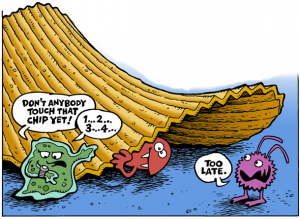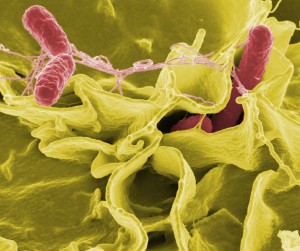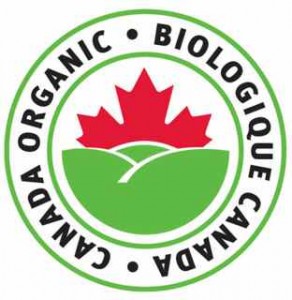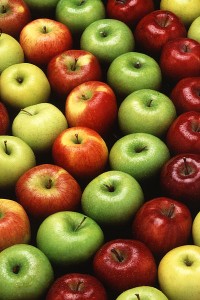I’m sure everyone has used this rule to eat that chocolate bar that you have been saving all day that has just fallen to the ground. The rule states that if you picked up the dropped piece of food quick enough, it will be safe to eat. But how quickly do you have to pick it up for it to still be safe? Or is it something we say that allows us to save that chocolate bar that has just landed on the floor?

5-Second Rule! Image via Wikimedia Commons Greg William’s WikiWorld.
The first person to study this rule was a high-school intern at the University of Illinois Jillian Clarke in 2003. She surprising found that approximately 50% of men and 70% of women followed the 5-second rule. She conducted an experiment by dropping gummy bears and cookies on tiles contaminated with E.coli. Sure enough after 5 seconds, all the food was contaminated with bacteria.
This raises the question: Is that enough bacteria to make us sick? This leads us to a study done by Dawson and his colleagues, in the Journal of Microbiology at Clemson University. They chose the bacteria salmonella. Bread and bologna were dropped onto salmonella-soaked tiles for 5 seconds and for 1 minute. Bacteria adhered to the food immediately. After 5 seconds, the bread and bologna collected 150 to 8,000 bacteria! After 1 minute, the number of bacteria was 10 times greater. When you take into consideration that only 10 strains of salmonella are needed to make you sick, you may want to reconsider putting that food back into your mouth.

Salmonella. Image via Wikimedia Commons, Rocky Mountain Laboratories.
Believers of the 5-second rule say, “The acid in my stomach and saliva is strong enough to kill bacteria!” This is false. Many viruses and bacteria actually thrive and survive in low pH environments. Many harmful bacteria can survive long enough in the human body to get into the intestine to infect it. If dropping a piece a bread can lead to 150 to 8,000 bacteria clinging to it, why don’t we get sick more often? The answer is our immune system. Our immune system is constantly working to fight these bacteria and viruses, preventing us from getting sick all the time.
Bacteria are found everywhere, even on that freshly cleaned sparkling kitchen tile. A study from the Hygiene Council shockingly found the kitchen floor near the sink has more bacteria than the trash can. One of the most shocking items that carry lots of bacteria that we use everyday is our cell-phone. Cell phones carries about 25,000 germs per square inch while toilet seats carry 344 germs per square inch. If you compare the two, the number of germs found on just one cellphone is the same number of germs that are found on 73 toilet seats!

Toilet. Image via Wikimedia Commons rfc1394.
A more in detail discussion about the truth of the 5-second rule:

YouTube Video “Is The 5-Second Rule True?” via Vsauce.
I hope this makes you rethink the 5-second rule. Maybe it is not the best idea to put that chocolate bar back into our mouths after it has touched the floor.

Hilarious Comic by Matt Melvin of Cyanide and Happiness. All rights to Cyanide and Happiness.
– Christine Wong



